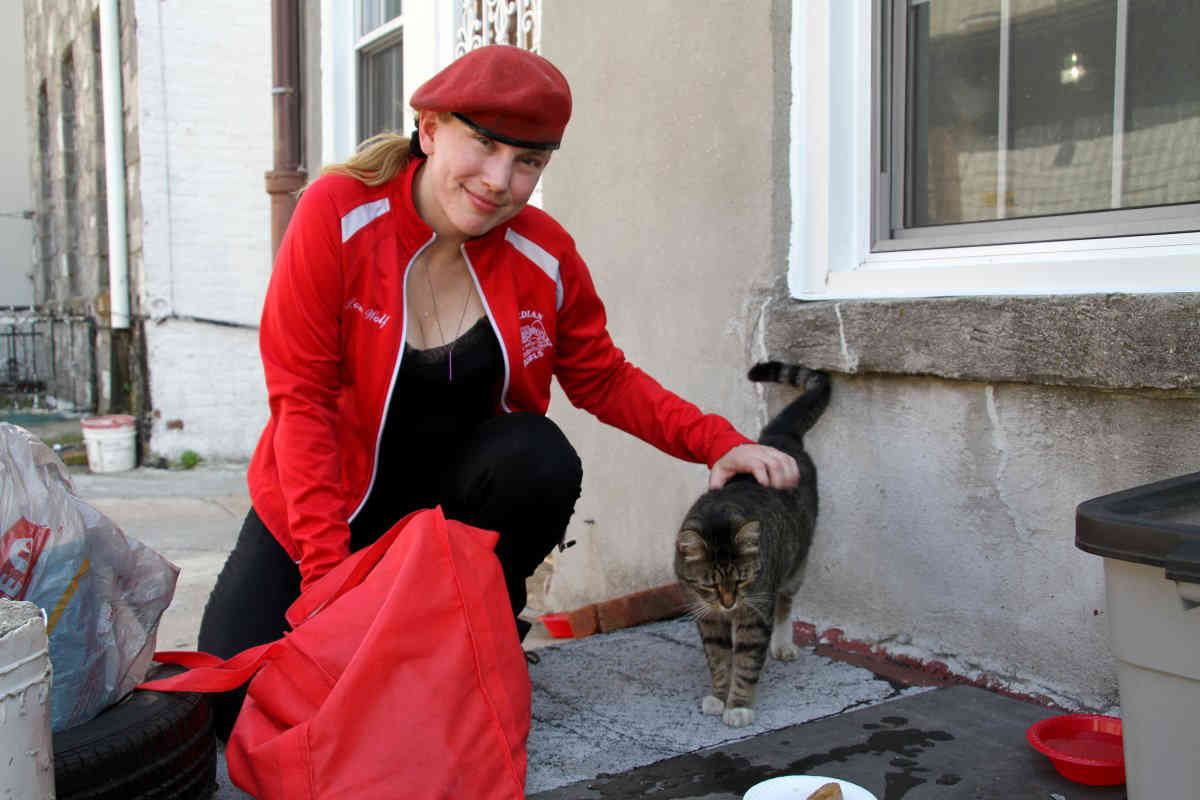Not all crime fighters walk on two legs.
Civilian anti-crime group the Guardian Angels is expanding its Kings County ranks to include some ferocious felines in order to combat the borough’s epidemic of cheese-stealing crooks — the rats!
The beret-wearing human vigilantes will set up feral-cat colonies, such as the one taking over Brooklyn Bridge Park, free of charge in vermin-plagued neighborhoods to rid them of the furry pests, according to one angel.
“Just the scent of the cats is enough to keep the rats away,” said Nancy Regula, the Guardian Angels’s director of animal protection.
The scheme requires owners of rat-infested properties in need of feline aid to provide outdoor space for the cats to eat, drink, and take naps, according to Regula, who said the angels ensure that colony residents are spayed and neutered, and provide instructions for keeping the habitat tidy and safe, but stop short at outfitting the kitties in red berets of their own.
“I help make it a cleaner colony concept, but [clients] are doing all the leg work,” said Regula, who tends to several Sunset Park feral-cat colonies, from which she’s used critters to spawn spin-offs around the borough.
The idea to outsource mousers from the colonies she oversaw came to Regula when a property owner in the outer borough of Manhattan reached out requesting cats to fight a rat problem, she said.
“They reached out because their next-door neighbor had cats, but then they moved out, and all of a sudden the rats came back,” Regula said.
And after a construction project near the Canarsie Cemetery on Remsen Avenue sent vermin scurrying into area homes last year, the angel helped create a colony in the neighborhood — the childhood home of Guardian Angels founder and talk show host Curtis Sliwa — that sent the rodents scurrying as quickly as they came, she said.
“They took care of the rats,” Regula said.
Using felines to manage rat populations is an ancient extermination art, used centuries ago by mariners who crewed ships with cats in an attempt to curb the spread of the Black Death — which a recent study revealed may have been spread by people, not rodents.
The practice fell out of vogue over the decades, however, and today in New York City, bodega owners who employ cats as rat catchers can be fined between $200 and $350 under current laws.
But in Chicago — the city that topped pest controller Orkin’s “50 Rattiest Cities” list for the last three years, and likely will soon be less populous than Brooklyn — a shelter’s program that also sics feral felines on unwanted vermin became so popular after its 2012 debut that some reports declared the mousers a “must-have yard accessory.”
Closer to home, leaders of do-good animal group the NYC Feral Cat Initiative — which shows volunteers how to trap wild cats and keep colonies — set up a habitat near Manhattan arena the Javitz Center in 2016 for mousers Sylvester and Alfreda, who curtailed the venue’s rodent population at a fraction of the cost, according to a New York Post report.
And if cats aren’t your thing, dog-owning vermin hunters with the local Ryders Alley Trencher-fed Society will freely bring their rat-hungry gang of terriers, dachshunds, and other breeds to your place for one big extermination extravaganza, according to a member.
“You can’t even get a word out — there’s the rat, and the dog already has it,” said Susan Fried. “They grab it, shake it, and it’s done.”






















